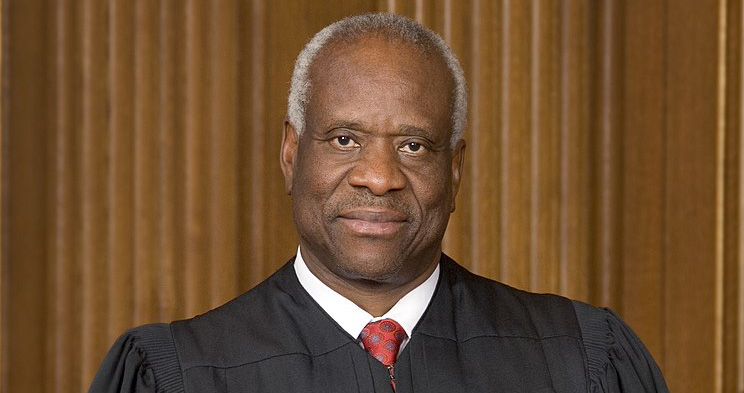Joined by 2 other justices, Thomas rejects liberal colleagues' criticism in case of death-row inmate

U.S. Supreme Court Justice Clarence Thomas.
U.S. Supreme Court Justice Clarence Thomas says “there is nothing of substance” to four colleagues’ allegations of unfairness last month in the U.S. Supreme Court’s handling of a stay request.
Thomas concurred Monday in the Supreme Court’s refusal to hear the case of Alabama inmate Christopher Lee Price. His opinion rejected the criticisms in Price’s case last month by Justice Stephen G. Breyer.
Thomas’ concurrence was joined by Justices Samuel A. Alito Jr. and Neil M. Gorsuch.
Joined by the court’ s three other liberals, Breyer’s April 12 dissent had criticized the Supreme Court’s majority for lifting the stay of execution in a “middle of the night” decision that didn’t allow for discussion Friday morning. Price was seeking to be executed by nitrogen hypoxia rather than lethal injection.
Thomas countered Monday that “an accurate recounting” of the circumstances makes clear that Price’s execution “was set to proceed in a procedurally unremarkable and constitutionally acceptable manner.”
Thomas wrote that Price was represented “by a well-heeled Boston law firm” when he failed to sign a form indicating he wanted to die by nitrogen hypoxia rather than lethal injection.
Forty-eight other inmates signed the form by the statutory deadline, but Price didn’t ask to die by nitrogen hypoxia until six months later, two weeks after the execution date was set, Thomas said. In addition, lower courts had failed to consider how Price’s “unjustified delay” in presenting new evidence favoring nitrogen hypoxia factored into a decision on a stay.
Thomas also said Price was unlikely to succeed on the merits of his claim, which attacked a lethal injection method that already has been upheld by the Supreme Court.
“Given petitioner’s weak position under the law, it is difficult to see his litigation strategy as anything other than an attempt to delay his execution,” Thomas wrote. “Yet four members of the court would have countenanced his tactics without a shred of legal support.”
Price has not been executed yet because the Supreme Court lifted the execution stay last month after Price’s execution warrant expired, requiring the state of Alabama to seek a new execution warrant. His new execution date is May 30, according to the Montgomery Advertiser.
“Of course, the dissent got its way by default,” Thomas wrote. Price’s “strategy is no secret, for it is the same strategy adopted by many death-row inmates with an impending execution: bring last-minute claims that will delay the execution, no matter how groundless. The proper response to this maneuvering is to deny meritless requests expeditiously.”



